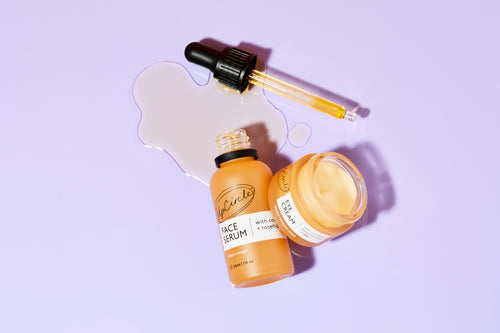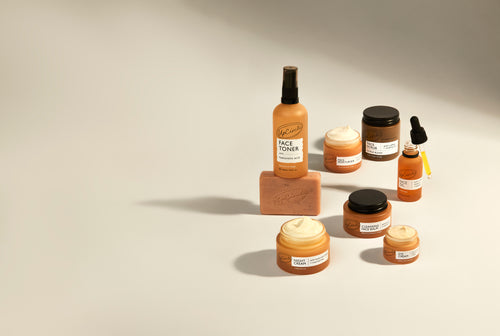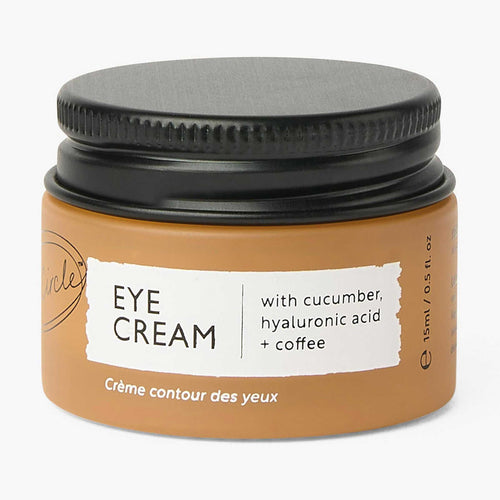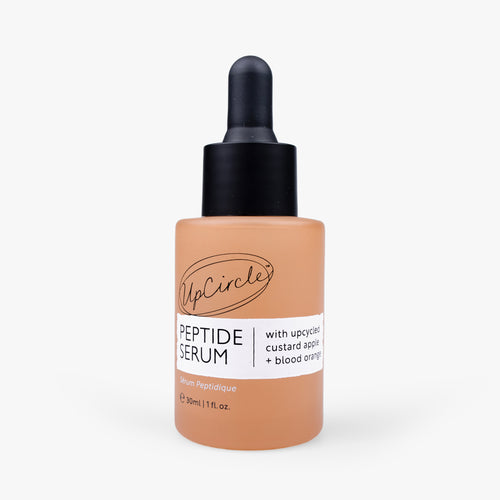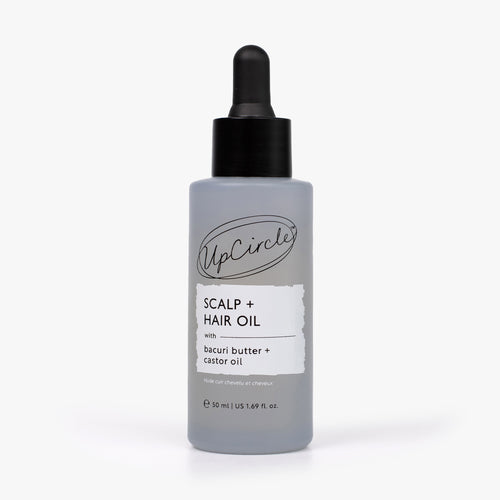If you’re one of the 95% of people aged 11-30 in the UK who suffer with acne, you may have been advised by well-meaning friends or family that makeup is pore-clogging, acne-causing, and overall bad for your skin.
Yet for those who struggle with our skin, makeup can be an amazing tool for boosting self-confidence, as well as an occasion for artistic self-expression and a chance to alter our appearance for fun as well as function.
With two such contrasting narratives, how are we supposed to work out whether or not makeup really does affect acne? And if it does, what can we do to improve our chances of avoiding nasty breakouts?
Does makeup cause acne?
To answer that question, we first have to think about where acne comes from.
Acne is formed when the pores on our face – tiny holes which release substances such as oil (sebum) and sweat – become clogged with dirt, sunscreen, sweat, oil, bacteria, dead skin cells, or, yes, makeup. This clogging is precisely why acne is more common in teenagers – in our teen years, our skin goes wild thanks to the sudden fact that the volume gets turned up on our hormones. This leads to overproduction of sebum which can then lead to spots and inflammation.
Of course, as we know, acne tends to calm down in adulthood, even if that’s not the message that will make any acne-prone teen or adult feel any better. Genetics and environmental factors play a major role in contributing to whether or not any one person develops acne; it’s rarely down to just one individual circumstance, and certainly, makeup does not cause it.
Does makeup make acne worse?
This is a trickier question. As mentioned above, makeup can be one of many pore-clogging factors in a person’s life.
By its very nature, most makeup sits on the surface of the skin, and depending on the number of products you’re using and how high coverage they are, makeup does indeed have the potential to cause exactly the kind of pimples you’re likely trying to cover up.
Furthermore, makeup can sometimes contain potentially irritating fragrance or other ingredients which create inflammation. Plus, there’s also the fact that many of us are guilty of falling asleep with a full face of foundation after a night out at one time or another, hindering our cleansing routine and making things hard for our pores.
All these factors mean that acne can indeed be exacerbated by the use of makeup. But it’s important to stress that other environmental factors, such as pollution, the wrong skincare or sunscreen, and touching your face a lot, can also lead to inflammation and spots.
What’s important to focus on is that there are lots of things you can do to negate the potential impact of makeup on acne, and make sure your skin stays as balanced and blemish-free as possible. In our experience, it’s not the makeup per se that’s the problem – it’s just that makeup without a good skincare routine becomes yet another thing to clog your pores.
What can we do about acne?
If you think makeup might be doing your skin more harm than good, but you can’t quite bring yourself to give up your beauty bag, we have good news! There’s plenty of ways to ensure that you can keep using all your favourite products, whilst still working towards skin that’s healthy and clear.
Take the day off
The first and most crucial step in giving your skin the best chance of surviving heavy makeup use is to ensure that at the end of the day, you remove absolutely everything on your face. That means dirt, sweat, sunscreen and makeup, to ensure that you go to bed with a clean canvas to allow your skin to breathe and absorb all the goodness in your skincare ingredients.
This is especially important during the summer months, when sweat and oil can combine to make dead skin cells ‘sticky’ until they clog your pores and cause some serious skincare problems.
Ingredients and formula
Second of all, you can decrease the likelihood of clogged pores by choosing lightweight makeup, such as tinted moisturiser, instead of foundation. Or try transparent finishing powder rather than heavy, mattifying setting powders.
Alternatively, if you are really wedded to high-coverage concealer and foundation, try your best to choose products with non-comedogenic ingredients: essentially, that’s just a technical term for products which don’t clog your pores. It’s not an exact science but, as explained by this article, you can eliminate ingredients which might cause a negative skin reaction. Many of those ingredients can be harsh, unnatural, or non-sustainable anyway, so cutting them out can do a world of good for you and the planet!
On days off, consider skipping the heavy-duty makeup in favour of a lightweight tinted moisturiser or a bare face.
A good routine
Finally, you can pack the rest of your skincare routine with acne-fighting ingredients, such as salicylic acid and other gentle exfoliators. Plus, be sure to avoid other potential sources of inflammation, such as synthetic fragrance.
Done right, a gentle and natural skincare routine should negate the acne-worsening potential of your makeup. This will allow you to make the most of your skin, whether you’re wearing a full face of makeup or going all-natural!
We know that for those with acne, it can feel like a constant balance between risking clogging your pores with makeup and concealing something that makes you feel uncomfortable. We have a complete range of natural skincare for acne-prone skin and by developing a skincare routine that works for you, you can continue using makeup in the way that you like.

